




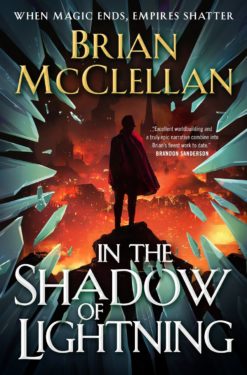 From Brian McClellan, author of The Powder Mage trilogy, comes the first novel in the Glass Immortals series, In the Shadow of Lightning, an epic fantasy where magic is a finite resource—and it’s running out.
From Brian McClellan, author of The Powder Mage trilogy, comes the first novel in the Glass Immortals series, In the Shadow of Lightning, an epic fantasy where magic is a finite resource—and it’s running out.
“Excellent worldbuilding and a truly epic narrative combine into Brian’s finest work to date. Heartily recommended to anyone who wants a new favorite fantasy series to read.”—Brandon Sanderson
Demir Grappo is an outcast—he fled a life of wealth and power, abandoning his responsibilities as a general, a governor, and a son. Now he will live out his days as a grifter, rootless, and alone. But when his mother is brutally murdered, Demir must return from exile to claim his seat at the head of the family and uncover the truth that got her killed: the very power that keeps civilization turning, godglass, is running out.
Now, Demir must find allies, old friends and rivals alike, confront the powerful guild-families who are only interested in making the most of the scraps left at the table and uncover the invisible hand that threatens the Empire. A war is coming, a war unlike any other. And Demir and his ragtag group of outcasts are the only thing that stands in the way of the end of life as the world knows it.
Please enjoy this free excerpt of In the Shadow of Lightning by Brian McClellan, on sale 06/21/2022.
Prologue
Demir Grappo picked his way through the aftermath of a battle as the sun began to set over the mountains. The sky was a brilliant hue of red, wispy clouds looking like the flames of an eternal forge, a scene worthy of a painting if not for the carnage spread out across the plain in every direction. Demir let his eyes linger on that sunset, trying to block out the screams and moans of the dying. He wondered if his army had an official artist. Most armies did, didn’t they? If not, he should get one.
He held up his fingers to make a rectangle like that of a landscape painting. It was an incredible view. Slowly, he lowered his fingers so that they took in the rapidly darkening battlefield. This . . . less so.
Demir had grown up on stories of wartime glory—of heroism and last stands and outnumbered cavalry charges; of unstoppable breachers in their brightly colored sorcerous armor cutting a swath through infantry while glassdancers rained shards of glittering silica across the battlefield.
Those painted words had always been so much cleaner than reality. They hadn’t talked about the clouds of powder smoke, or the putrid slurry of mud and blood underfoot. None of his tutors had ever mentioned the screams of grown men and women—weeping for fear, for wounds, or for their dead friends. They certainly hadn’t mentioned the smell.
And the blood. Oh, so much blood. There always was when glassdancers were involved.
Demir had managed three victories in seven days, and he could not deny that watching a battle unfold to his specifications had made his heart pound in a way he’d never before experienced. Seeing the enemy routed; listening to his soldiers cheer—those things certainly felt glorious. But this? There was no glory for the medics, surgeons, and priests wandering the aftermath.
Demir contemplated the swampy morass of blood left in the wake of a company of soldiers who’d fallen beneath a glassdancer’s attack. The bodies were eviscerated, sliced apart by millions of shards of glass. Those that survived looked like horror-house dummies, screaming in agony until a medic could reach them with various types of godglass to distract the mind, lessen the pain, and speed recovery.
Was that his handiwork, he wondered? They were rebel soldiers, after all, and it was easy to lose track of these sorts of things during the chaos of a battle. His eyes fell on one of the wounded, a young woman sitting up with precious pain-deadening milkglass clenched between her teeth. She was staring at Demir with a mixture of horror and fear so intense that Demir found himself covering the overlapping triangle tattoo on his left hand that marked his sorcery.
His glassdancer tutor had once told him that it was good and right for their kind to stand above others. It was a gift, she had claimed, and beyond the sorcerous power to manipulate common glass it would also give him a psychological edge over others. They would always fear him, because they knew he could kill with a thought.
The evidence was before him. Hundreds of men and women, cut to ribbons. They were right to fear him. He had never witnessed his own destructive power with such acuity as he had on the battlefield these last seven days, and deep down, it terrified him. Would he get used to this over time? He was only twenty years old, after all, and this was his first campaign. Would he harden? Or would it always leave him sickened?
Demir looked around for something—anything—with which to ground himself. His staff of officers hadn’t yet noticed his disappearance, and he was alone but for the dead, the wounded, and the healers and priests who tended to both. The living gave him a wide berth the moment they connected his decorated black uniform with the silic sigil marking him as a glassdancer. They might not actually recognize him, but they could do the math. General Grappo, the glassdancer commander.
He hated that so much. Why couldn’t they see the victories he’d given them, instead of the deadly sorcery he never wanted?
His eyes finally fell on a familiar figure and he turned his aimless wandering in that direction. He passed a medic handing a piece of white godglass the size and shape of a horseshoe nail to a wounded soldier. “Clutch it between your teeth until the pain passes,” the medic instructed, glancing at Demir as if it were his doing. Half the soldier’s guts were hanging out. She would be dead in a few hours, but the sorcery of the milkglass would ease her passing. On a whim, Demir tried to feel the little piece of milkglass with his sorcery, but the spot it occupied was cold and dead to his senses. Godglass was the only glass a glassdancer could not manipulate.
Putting the medic and his dying patient from his mind, Demir approached the man he’d seen kneeling in a small clearing in the field of dead. Demir knew him just well enough to guess that he was not praying. Clearing his head, he called it, before and after every battle. Demir wished more soldiers attended to their own minds as carefully.
Idrian Sepulki was big, over six feet tall, with skin as dark as coal, broad shoulders, and legs strong as tree trunks. He wore the armor of a breacher: halfplate of interlocking steel worked with a myriad of high-resonance godglass; accents of milkglass to suppress pain; bands of yellow forgeglass to increase his strength and speed; pinpricks of purple witglass to invigorate the mind. Most predominant of all was the dark blue hammerglass that was harder than steel, making the armor itself almost indestructible. Idrian’s kite shield and immense bastard sword, both also inlaid with godglass, lay on the ground beside him, crusted in blood from the battle. His helmet had two hammerglass ram’s horns curled tightly against the steel. Among the soldiers, Idrian was known simply as the Ram.
The sorcery of so much godglass in one place would sicken a normal person in a few minutes and kill them in mere hours, but Idrian was a glazalier—one of those rare individuals resistant to glassrot. All breachers were, by necessity. Demir glanced down at the back of his own hand where a purple, scaly shimmer had appeared on his skin. It was the first sign of glassrot, caused by using witglass to plan and command the battle. Without care, the patch would harden into something akin to fish scales and become permanently fixed to his skin. He would need to be judicious with his exposure to sorcery for a few days.
“Breacher Sepulki,” Demir greeted Idrian. The soldier cracked open one eye, saw that it was Demir, and made to get to his feet. Demir stopped him with a wave. “Don’t let me interrupt.”
“There is nothing to interrupt, sir,” Idrian replied, his voice a deep, vibrant bass. “I am simply emptying my mind of violence.” He opened both his eyes, revealing that the right had been replaced long ago with a false eye made of purple witglass. Demir had asked around a couple of weeks ago, but no one seemed to know when he’d gotten that glass eye, or why it hadn’t killed him yet. Taking godglass into one’s own body wasn’t unheard of, but it was very dangerous, even to a glazalier.
“Sounds healthy,” Demir responded. “I was enjoying the sunset, myself.”
Idrian fixed Demir with that unsettling, one-purple-eyed gaze. There was no fear in that gaze, and for that Demir was grateful. At least someone in this army viewed him as more than a monster. But then again, breachers were little more than state-sponsored killing machines. Power understood power. “It is quite striking, sir. Congratulations on the victory.”
Demir gave Idrian a cool nod and wondered if it irked the breacher to call someone less than half his age “sir.” “It does seem to be a victory, doesn’t it?”
“The enemy has been crushed. Whatever strength they have left has fled to the mountains. Holikan lies defenseless before us.” Idrian nodded to himself. “At least, that is the intelligence I have received. You may have more current information.”
“No, that’s about the sum of it.”
Idrian snorted. “Thank you, sir. Do you happen to know where my battalion is?”
Demir considered this for a moment, going through a catalog of the thousands of commands he’d sent out over the last twenty-four hours. He wouldn’t usually keep tabs on a single battalion, but Idrian belonged to the Ironhorn Rams—they were commanded by Demir’s uncle Tadeas and they were the best combat engineers in the Ossan Empire. Idrian would normally be with them, but Demir’s plans for this battle had required an extra breacher.
“Haven’t caught up to us yet,” he answered. “I imagine they’re still blowing up bridges along the Tien.” He frowned. “That reminds me, let’s send a fast horse to let them know the war has been won. No need to destroy infrastructure that doesn’t need to be destroyed.”
“Of course, sir. Should I carry the message myself?”
“Eager to join back up with them?”
“They’re my friends, sir. I don’t like them being without their breacher.”
“Ah. No, stay with me a while yet, at least until I’m completely certain of the enemy’s surrender. We’ll send a horse, and I’ll make sure you rejoin them soon.”
“Thank you, sir.” Idrian paused. “If I may?”
“Yes?”
“The soldiers are calling you the Lightning Prince. I thought you might want to know.”
“I hadn’t heard that.” Demir took the name on his tongue and rolled it around. “Is it meant to be a diminutive for my age, or a celebration for the speed of my campaign?”
Idrian hesitated just a moment too long.
“Come now, be honest.”
“Both, I think.”
Demir chuckled. “I like it.” The Lightning Prince. Most great men were middle-aged before they’d earned an honorific like that. He hummed to himself, enjoying the way the nickname sounded in his head. It almost made him forget the blood soaking his boots. Maybe he would get used to this. Maybe he would harden to killing, and to ordering others to kill.
He shuddered. No. More importantly than being a glassdancer or a general, he was a politician. He was in charge of this campaign by circumstance only, and within a few days he planned on heading right back to his province, where he could put the bloodshed behind him and focus on helping his people.
Idrian climbed to his feet, towering over Demir by eight inches. “Sir, I believe that your staff is looking for you.”
Demir glanced the way Idrian nodded to see a small group approaching on horseback. They were an odd mix of Ossan political liaisons—here to oversee negotiations with the enemy—and grizzled officers sent along to make sure this young upstart governor didn’t make a complete disaster of his first campaign. The lot of them grinned at him like asylum fools. He could see in their eyes that they expected to gain prestige, land, and merits on the coattails of his victory. Demir didn’t mind. Sharing credit meant they would be beholden to him in the future; a card to keep in reserve for if he ever needed it.
He let his eyes wander across the group for several moments, making mental notes of who he could use in the future, who might be trouble, and who he could forget. Tavrish Magna was a great potbellied jokester with few ambitions. Helenna Dorlani whispered behind Demir’s back constantly, undermining him with the subtlety of a company of cuirassiers. Her cousin Jevri gladly took Demir’s bribes to report on her. Three members of the small Forlio guild-family had managed to finagle their way onto his staff, and they stood to gain the most from this campaign, while Jakeb Stavri had made deals in the Assembly that bet strongly against Demir’s success. He would lose hundreds of thousands, and based on the look on his face, he knew it.
It was a complex group, both personally and politically—untrustworthy adders slithering about his feet, any one of which might bite at any time. Even in victory he needed to be cautious, lest one of them turn on him for their own gain.
The man out front was named Capric Vorcien, and he was a personal friend that Demir had brought on campaign to cover his back against all the rest. Capric was a tall, thin man in his early twenties with the black hair and olive skin of an Ossan native. Tattooed on his right hand was an inverted triangle crossed with the wavy lines of a sun setting over the desert— the silic symbol of the Vorcien guild-family. He saluted Demir grandly and swung down from his horse.
“Hail, Victorious Grappo!” Capric called. The others echoed the words with various levels of enthusiasm. Demir gazed back at the group, still evaluating each person, noting the secrets hidden in the eyes of each. Behind their pleasure at a battle won, there was fear there, just like the soldiers’. How many glassdancers were there in the officer corps, after all? Not many. Capric was the only one who didn’t seem to walk on eggshells. “That was an incredible battle,” he complimented Demir.
“Satisfactory,” Demir demurred. “That countercharge from their dragoons surprised me.”
“But you shattered it anyway. Glassdamn you, man, take some credit!” Capric clasped his hand, pulling him into a congratulatory hug during which he whispered, “Look over my left shoulder. If you want to go ahead with your next plan, now is the time.”
Demir’s eyes found an unfamiliar trio among his staff: a middle-aged woman with the blond hair of an eastern provincial, accompanied by two bodyguards, all three of them looking haggard and defeated. He pulled back from Capric and gestured at the group. “What is this?” he asked loudly, though he knew exactly who they were.
“The mayor of Holikan has come to surrender.” At Capric’s gesture, the woman approached Demir, hands held out in supplication. She fell on her knees, pressing her face to the ground.
“I surrender the city of Holikan,” she intoned. “I do not ask for terms— but I offer my life in exchange for the lives of my subjects. They do not deserve the wrath of the Empire.”
Demir blinked down at her. He had discussed this moment with Capric at length. It was the crux of the next step in his political career, and yet it still managed to surprise him. Beside the prostrating mayor, Helenna Dorlani produced a short silver lance and now held it, pommel-first, toward Demir. Tradition dictated that he accept the surrender and then pierce the mayor’s neck with the ceremonial weapon, executing her on the spot. She was a rebel, after all; an insurrectionist and traitor to the Ossan Empire. Demir glanced toward Idrian, his confidence wavering at the idea of such immediate, formalized bloodshed, but the breacher had taken two long steps back as if to say that a soldier had no business in this kind of thing.
Demir took the lance from the liaison and turned toward Capric. Capric himself just shrugged. He knew Demir’s mind. He knew Demir had no intention of following outdated traditions just to please the Assembly. Demir gave the lance a little twirl, then slapped the haft thoughtfully against his left palm. “Stand up,” he said.
The mayor glanced up at Demir, then at the gathered officers. She seemed confused by the fact that she wasn’t being speared at this moment. Demir thrust the lance into the ground, point-first, then leaned on it while he took the mayor under one arm and pulled her to her feet. He offered her his hand.
“Good evening. I’m Demir Grappo.”
The mayor stared at his other hand for several moments—or rather at the glassdancer sigil on it. Finally she answered the handshake. “I am Myria Forl, mayor of Holikan.” She hesitated for another few moments, then added, “I’ve heard of you, Demir Grappo.”
“Good things, I hope.”
She nodded. “What are you doing here? You’re a governor two provinces over; a politician, not a warrior.”
“Warrior?” Demir laughed and jerked his thumb at Idrian. “He’s a warrior. I’m just a bit clever. Tell me, Myria, what do you want?”
“I . . . Excuse me?”
“Seven months ago, you declared your independence from the Ossan Empire. You’ve defeated two armies, gathered support from your province, and from what I can tell were doing a damned good job of this whole rebellion before I showed up. And yet . . . you’re still calling yourself a mayor.”
“Because that’s what I am,” she said incredulously.
“So this wasn’t a personal power grab? You haven’t made yourself Monarch of Holikan?”
“No,” she said emphatically. “I declared independence because Ossa has only ever treated us as provincials. We are not, and will never be, equals. We want fair taxes and local magistrates, and—”
Demir cut her off gently. “I know. I read your declarations, all eightyseven of them. I just wanted to ask you in person.”
A throat cleared, and Demir turned to find that Helenna Dorlani had retrieved the silver lance, wiped the blade, and now held it toward him once again. “General Grappo, it is tradition that you spill the blood of the rebel leader, then decimate the city.” She seemed confused, her eyes darting toward the sigil on Demir’s left hand as if wondering why a glassdancer wasn’t ready to kill at a moment’s notice.
Demir ignored her and took a long look toward the city, where lanterns were being lit in the windows as night fell. He could imagine the fear of all those people, having just witnessed their army scattered, knowing the traditions of the Ossan Empire. “Decimate,” Demir muttered. “To force the entire city to draw lots, and then make them murder one out of every ten of their own number. No quarter for children or the infirm. That sounds unpleasant.”
“It’s meant to be,” Helenna insisted. “It’s a punishment.”
“For what? The crime of wanting to be treated as citizens in their own country?” Demir snorted. “I don’t believe the punishment fits the crime, and I will not allow it.”
“But . . .” Helenna stuttered, “you must!” She turned to Capric. “Tell him that he must follow tradition.”
Demir didn’t let his friend answer for him. “What law requires it?” he asked lightly. “None. I may be young, but I was the governor of my own province when I was fourteen. There is a difference between law and tradition—and I know the laws like my own silic symbol.” He held up his right hand to show the tattoo of an upside-down triangle with cracked lightning spreading from the center. It was the sigil of the Grappo guild-family, a complement to the glassdancer sigil on his left—the two tattoos of true power within the Empire. He took a deep breath. “Madame Mayor, do you surrender Holikan into the care of Demir Grappo of the Ossan Empire?”
Myria Forl stared at him warily. “I do.”
“Wonderful.”
As the words were said, Capric was already removing something from his saddlebags. He produced and unfurled a black and crimson cloak with solemnity. Demir felt the twinge of a smile on his lips, his heart skipping a beat. The victor’s cloak was another tradition, one of pomp and foolery, meant for nothing but flattery.
But he’d damn well earned it, and he savored the moments that it took Capric to lay the heavy fabric across his shoulders and then clasp the golden chain. Capric finished the ceremony by placing a single kiss on Demir’s left cheek and giving him a small bow. “Well done, Lightning Prince.”
The hairs on the back of Demir’s neck stood on end at the formal statement of his new honorific. He kept his face expressionless, nodding to Capric and then declaring, “The city of Holikan is now under my protection. They are not rebels, they are our cousins, and we will treat them accordingly!” The officers stared back at him in vague surprise. None of them would argue, of course, not with their general and certainly not with a glassdancer—but he knew they were all furiously penning letters to the capital in the backs of their heads.
“What the piss are you doing?” Myria whispered.
He replied in a low voice, “I may be an Ossan citizen, but I’m also the governor of a province. My people have the same complaints as yours, and I will take them to the Assembly.”
“They won’t be happy.”
“The Assembly is made up of a bunch of rich, self-fellating fools. I know, because I am one. We’re never happy.”
“You’re mad to defy them.”
“Madness and greatness are separated only by the degree of success. Besides . . .” Demir glanced at the battlefield around them. His stomach turned at the sight, and he found himself struck with a longing to return to his province. This last week had proved he was good at war, but he much preferred peaceful administration, where he could spend all day greasing the cogs of government and then climb into bed with his mistress. He thought briefly about how most citizens his age were busy going to university, getting laid, and looking for the next drink. He wondered what it would be like to be idle for once. The option had never been given to him. “I find that I prefer the living to the dead; and having friends to making enemies.”
Demir glanced over his shoulder to find Idrian still there, the big breacher wearing a thoughtful expression, gazing past Demir’s head and into the distance. He rubbed at his godglass eye. Demir wondered if he disapproved. Perhaps he would ask him on another day.
“Breacher Sepulki,” Demir said, “I’m placing the mayor under your protection. Keep her safe until we can sort out the rest of this mess, hmm?”
Idrian nodded silently.
“Good.” Demir slipped one hand into a special cork-lined pocket in his uniform. He produced an inch-long, spoon-shaped piece of witglass. The handle end of the spoon was worked into a flared hook that he pushed through one of the piercings on his right earlobe. Witglass was fairly common—it augmented natural mental faculties, making it a favorite among shopkeepers, officers, politicians, and more. But high-resonance witglass, the very best quality, had a habit of driving its wearers mad. Demir was the only person he knew of with a strong enough mind to make use of it.
The sorcery took effect immediately, the barely perceptible hum and vibration creeping into his brain to speed his mind, allowing him to visualize the branching possibilities of the near future. He made calculations at an inhuman speed, processing decisions weeks ahead of time, preparing himself for his next hundred moves as if he were playing a complicated game.
But this wasn’t a game. It was his career, and the lives of all these people, and perhaps even the future of the Empire. He would use his victory to bolster his guild-family name the same as any good Ossan, but he would also use it to better the lives of millions. Ambitions, he had decided when he was barely twelve, did not have to be just for oneself. He had ambitions for everyone.
One day the world would see that he was more than his innate sorcery. The masses would smile at him without fear.
Satisfied with his plans and remembering his own encroaching glassrot, he slid the witglass off his ear and back into his pocket, where the velvet and cork lining protected him from the godglass sorcery when he didn’t need it. He let his fingers remain there for a moment, running them over the various godglass baubles. Each was shaped differently so as to be picked out by feel; a comforting assortment of sorcerous crutches for his weak, mortal body.
He was deep in thought from his brief meditation when one of the staff, still on horseback, called out. “Sir, there’s something going on back in camp.”
Demir felt the tug of his own thoughts, and it took a force of will to pull himself out of them. He let go of Myria’s arm, giving it one last reassuring pat as if they were old friends, before lifting his eyes in the direction of the camp. The plain here had only a slight incline, and it wasn’t until he had found his horse and gotten into the saddle that he was able to tell what the staffer had been talking about.
There was, indeed, something going on in camp. Hundreds—no, thousands—of torches had been lit, and a large procession was breaking away from the encampment and heading across the plain directly toward Holikan. The torches glittered as the last vestiges of sunlight disappeared over the horizon. Despite all of his mental faculties, Demir found himself completely flummoxed. After the battle, select regiments had been sent out to treat the wounded, hunt the fleeing enemy, and secure outposts, but the bulk of the soldiers had been ordered to return to their tents, where casualties could be counted and control could be asserted over an army with their blood up.
So what the piss were they doing marching toward the city?
“Capric,” he called, “find out what’s going on over there.”
Capric scowled in the direction of the city for a few moments before throwing himself into the saddle. Demir watched him ride away, transfixed, something in his brain refusing to click over, knowing that something was wrong but unable to find an explanation. This was not in his calculations. Unwilling to show himself in a panic, but unable to remain completely idle, Demir began to ride slowly toward the south, a fear of the unknown growing in his belly. He took the fabric of his victor’s cloak between two fingers of his left hand, rubbing it anxiously.
It wasn’t until Capric returned, breathless, that the fear really took hold.
“Demir,” Capric barked, “there’s been some kind of communication error. The Eighth seems to think they have orders to sack the city.”
“Sack the . . .” Demir whispered. “What glassdamned century is this? We don’t sack cities! Get back there and tell them to return to camp! Spread the order to all the colonels. Go!” Capric galloped off, and Demir glanced over his shoulder at his staff. He eyeballed Helenna Dorlani first, then Jakeb Stavri and the oldest of the Forlio brothers. Everyone wore the same expression of vague confusion and surprise that he imagined on his own face. “Who gave orders to sack the city?” he demanded.
They all looked at each other and shook their heads. “No one would give an order like that,” Jakeb said. “Decimation, yes. But nobody has sacked a city in a hundred years!”
Demir swore and turned back, watching until the realization finally settled in that the soldiers would reach the outskirts of the city before Capric even made it back. Once they’d actually started their pillaging, it would be impossible to get them to stop. He dug in his own heels, forcing his horse into a gallop, barely hearing the startled swearing of his staff. The darkness quickly forced him to rein in lest his mount break a leg crossing the uneven plain, and it was almost ten minutes before he reached the column.
He was greeted by a harried Capric. “The colonels say they all have orders to sack the city!” Capric reported.
“Who gave the order?”
Capric winced. “You did!”
“What?”
“They all have orders with your personal seal telling them to conduct the sacking.”
“No, no, no,” Demir breathed, watching the stream of soldiers flow past him, torches and bayoneted muskets in hand. Some were somber. Some cheered the dark promise of a night spent slaking a bloody thirst. All of them were heading out to follow orders. His orders, apparently. He fumbled for his witglass, fixing it to his ear long enough to churn through his memories, looking for some kind of mistake.
Had he sent out a poorly worded missive? Had he said something offhand to one of his secretaries? Nothing immediately came to mind, and that terrified him. Mistakes could be made along the best lines of communication, but this was beyond anything he’d encountered in his studies.
He needed to find out what had happened, but first he had to curtail this impending ruin. He pointed at an officer among the group. “You there, Captain, hold your men!” The captain either didn’t hear him, or ignored him. The soldiers themselves were so engrossed in the prospects of their new mission that they didn’t even notice his presence. Demir urged his horse closer, wishing he had a pistol to fire in the air. “Stop!” he shouted. “Hold! Get yourselves in order, damn it!”
Anger warred with the growing panic in himself. He reached out, grasping for scattered bits of glass left over from the battle and plucking them up with his mind. Hundreds of shards rose into the air, hovering in place like frozen raindrops as they awaited his mental command. His eye twitched, his thoughts stayed by indecision. Could he kill his own men to avert this disaster? How many would he need to massacre to get their attention? After several moments he let go. The pieces fell, sprinkling to the ground, unnoticed by the marching soldiers.
He heard a gunshot, then another. Screams came from the direction of the city, followed by the sounds of whooping. Demir could feel control slipping from his fingers, eliciting a panic deep in his chest like one he’d never felt in his life. He turned and galloped toward the outskirts of the city, where the gunshots, screams, and shouting grew louder and more chaotic. He soon passed a woman’s body lying by the wayside, bayoneted several times. The sight of it made him want to vomit. He saw another corpse, then another—obvious civilians, all of them.
A stronger man—a more experienced glassdancer—would have ended this with a quick, brutal show of discipline. Demir knew he could still do it, but he couldn’t bring himself to take the action. His mind was spinning now, frayed at the edges and threatening to snap. What madness was this? How could any of his officers have thought he would give such an order? He had marched them across the mountains with uncanny speed and won them three great victories but he’d never been cruel in triumph.
He reached the outskirts of the city and found that thousands of his soldiers had already plunged into the interior. They rushed from building to building, snatching anything of value, throwing children into the street, killing men and women where they stood, all in the flickering of torchlight while the smoke of burning buildings began to thicken.
Demir continued to ride, searching for officers, trying to find someone to help him get this under control. He was half blinded by smoke, confused and disoriented, when his horse stumbled over a tipped cart. He barely threw himself free of the animal, landing on his left hand, pain lancing up his arm. His horse rolled over, making a murderous racket, then got upright and galloped off into the night.
Clutching his wrist, unable to think through the pain and the cacophony, Demir rushed from building to building, ordering his soldiers to stop. He berated them, lambasted them, and finally begged them. A few of them frowned at his mud-covered uniform. No one recognized him. Why would they? Few had ever seen his face up close, and he couldn’t get the glove off his broken left hand to show them his glassdancer sigil.
“Who is this?” one would ask.
“Some madman,” another would say.
“He has an officer’s uniform and an expensive cloak.”
“The officers are all getting drunk in Grappo’s tent. We have orders to follow. If we don’t do it quick, someone else will get the good loot. Three cheers for the Lightning Prince!”
They would laugh, and ignore him. Someone finally grabbed him by his victory cloak and threw him into a ditch, where he barely caught himself before going facedown in the filth.
He lay partially submerged in the muddy, shit-filled water, staring into the street. His whole body shook with fury and terror. Not a half hour ago he had pledged that Holikan was under his protection, and now there were orders under his seal to sack the city. With trembling fingers he reached into his pocket, searching for skyglass to help him calm his nerves. He pulled out a handful of baubles that immediately slipped from his fingers, falling into the mud. He plunged in after them desperately, but came up with nothing.
Across the street, the cry of a child caught his attention. He looked up to see a little girl—probably no more than four or five, screaming into the air. Demir pushed himself to his feet and struggled out of the ditch. If he could not save the many, he would save the one.
The sound of galloping hooves filled his ears, and his path was suddenly blocked by several dozen of his dragoons. He’d never been so close to them before, and the thunder of their passing would have made him piss his pants if he hadn’t already done it in the ditch. He searched his pocket for godglass, remembered that he’d dropped it all, and then gathered his courage. The dragoons were soon gone, and he took several more steps before his eyes fell on the spot where the child had been.
The child had been trampled. Her little body was silent and still, broken and bloody. He staggered toward her, tearing off his victor’s cloak and using it to scoop her up before sprinting to the other side of the road just ahead of another group of dragoons. He clutched the body to his chest, every fiber of him shaking, and dropped onto the front step of an abandoned shop.
The nightmare had only just begun.
By the time his staff found him, Demir had not moved. He had not slept, or eaten, or had a coherent thought in more than twelve hours. He sat on the step, cradling the corpse of the child in his victor’s cloak, having spent a night watching every atrocity that a victorious army could inflict upon a city. His head lay against the cool stone of the shop’s threshold, his eyes burning from the acrid smoke of a hundred fires, his tongue parched and his wrist swollen.
It was Idrian who discovered him and called for the others. The breacher had discarded his armor, wearing an officer’s uniform stitched with the ram’s horns that gave him his moniker. He came and knelt before Demir, examining his face. Demir flinched away from that purple godglass eye.
“Sir, are you all right?”
Demir could not find the words to reply. He felt hollow, stripped. He knew that his legs still worked, but the very idea of standing felt impossible. He licked his cracked lips, tried to summon words, and failed. He felt tears in his eyes and tried to look away; to hide them from the breacher.
“It wasn’t supposed to happen this way,” he finally managed. “I didn’t give those orders.”
“I know, sir,” Idrian replied gently. “Communication went awry. We’ll find out what happened, I promise.”
Slowly, the rest of Demir’s staff gathered behind Idrian, staring down at Demir. In the place of those victorious grins of yesterday were looks of horror and disgust. Capric came close enough to pry into what Demir had wrapped in his cloak, only to stumble away and retch in the ditch. Idrian’s one eye darted toward the dead child, but he did not flinch from it. Demir could feel the stares of his staff—he could see the calculation in their eyes, each one wondering how this development would affect their career or their guild-family. He could see that each of them was trying to figure out how to detach their name from this disaster.
It was one thing to punish a rebelling city with defeat and decimation. It was another entirely to put it to the torch.
Demir tried to think. He attempted to gather all his faculties, to calculate the possibilities of the future. He had given his word, before more than a dozen people, that Holikan was under his protection—and then his army had sacked it. They’d murdered and burned and plundered on his apparent orders. He needed to start an investigation; to pin this disaster on someone else, either real or invented.
“Witglass,” he croaked.
Capric returned to his side, pressing a piece into his hand. Demir fixed it to a piercing, trying to think. His mind was blank, and the witglass caused a sharp pain behind his eyes until he removed it and gave it back. He could no longer calculate. The future was dark and silent.
His mind had broken.
“Myria Forl?” he asked, raising his head to look for the mayor.
“She is safe,” Idrian assured him. “Your uncle arrived in the middle of the night and I left her with our battalion. No one will harm her.”
Demir’s gaze went to the black column of smoke that rose above them. “I wish she were not safe. I wish she could not see what I have done.”
“You didn’t do this,” Idrian said firmly. “It was an accident. A crossing of orders.”
Demir looked across the faces of his staff. They all avoided his gaze. Not from fear this time, but from shame. He had not done this, certainly, but it was his responsibility.
Slowly, every muscle hurting, Demir managed to climb to his feet without dropping the body of the child. He found the door to the shop open, and the inside ransacked, though he had no memory of soldiers forcing themselves past him. He deposited the body, still wrapped in his victory cloak, on the shop counter.
He touched the child’s hair briefly, searching for a prayer from his childhood, wishing he believed in a god to pray to. He tried to gather his thoughts. How could he face another person after this? How could he return to his guild-family, or his lovers, or the people of his province? How could he ever look another soul in the eye? He returned to the front step. For the first time in years he felt his youth; helpless, inexperienced, and wondering when a real adult would come along and fix all of this.
Idrian produced a milkglass bauble and pressed it into Demir’s hand. The godglass was not as high quality as his own, but the sorcerous effect was immediate—the ache began to bleed from his bones. “We should see to that wrist,” Idrian said. “It looks like it might be broken.”
Even with Idrian’s milkglass, Demir’s wrist hurt so bad that he no longer felt it. Like his soul, it was numb. “Who is my second-in-command?” No one answered. He peered at the faces of his staff. “I don’t even know.” A mad-sounding laugh slipped through his lips. “In my arrogance, I never thought I’d need them. Well. Whoever they are, congratulate them on their promotion.”
“Sir?” Idrian asked.
“I resign.”
“You can’t resign!” someone said. “This is your moment of triumph!”
Demir looked for Capric, hoping for an ounce of reassurance. His friend was staring slack-jawed at the dozens of dead in the street, all civilians. A triumph. He still might be able to salvage this. His mother, political genius that she was, would certainly try. But if he marched back into Ossa at the front of a triumphal parade after this, he would never be able to live with himself.
He avoided Idrian’s gaze. “Apologize to Myria Forl for me. Tell my uncle that I’m sorry for not finishing the campaign. Capric, write up my resignation. Forge my signature.” His mother would be disappointed. So promising, she would say. Such a fool. We could have fixed this. Demir stumbled off the step, regained his balance, and began to walk. “Tell them not to come looking for me,” he said over his shoulder. “The Lightning Prince is dead.”
Copyright © 2022 from Brian McClellan
Pre-Order In the Shadow of Lightning Here:





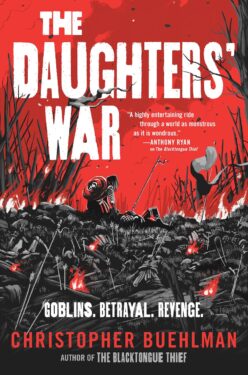 The Daughters’ War by Christopher Buehlman
The Daughters’ War by Christopher Buehlman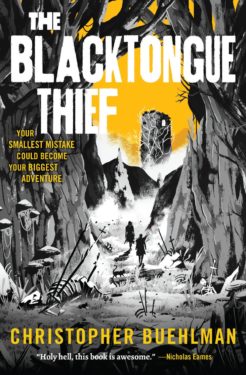 The Blacktongue Thief by Christopher Buehlman
The Blacktongue Thief by Christopher Buehlman Daughter of Redwinter by Ed McDonald
Daughter of Redwinter by Ed McDonald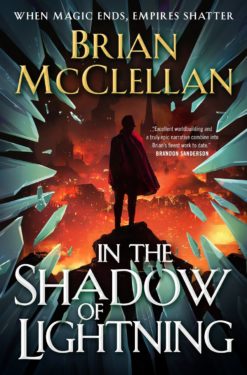 In the Shadow of Lightning by Brian McClellan
In the Shadow of Lightning by Brian McClellan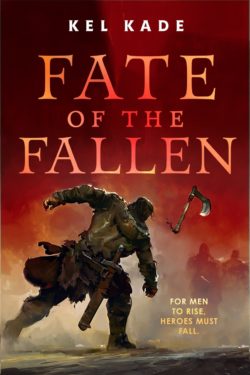 Fate of the Fallen by Kel Kade
Fate of the Fallen by Kel Kade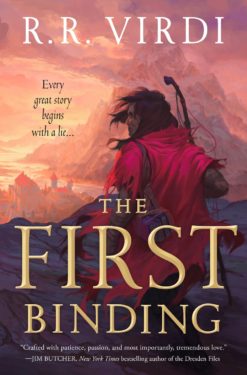 The First Binding by R. R. Virdi
The First Binding by R. R. Virdi

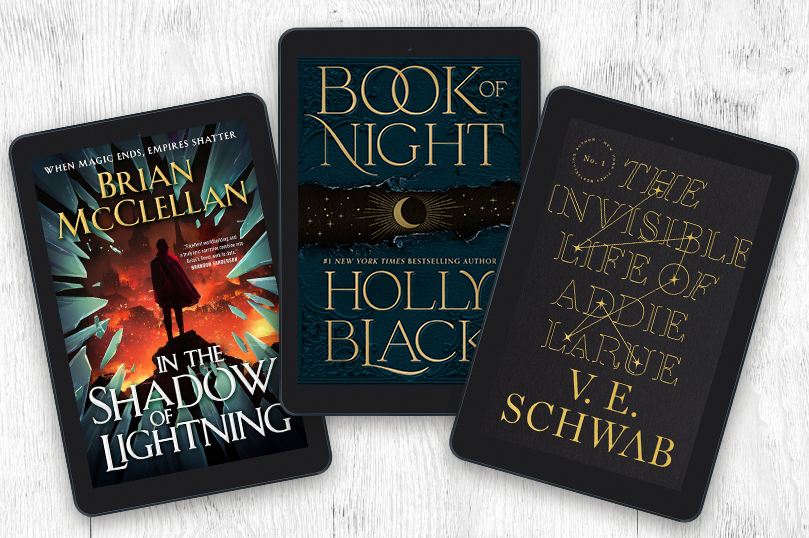
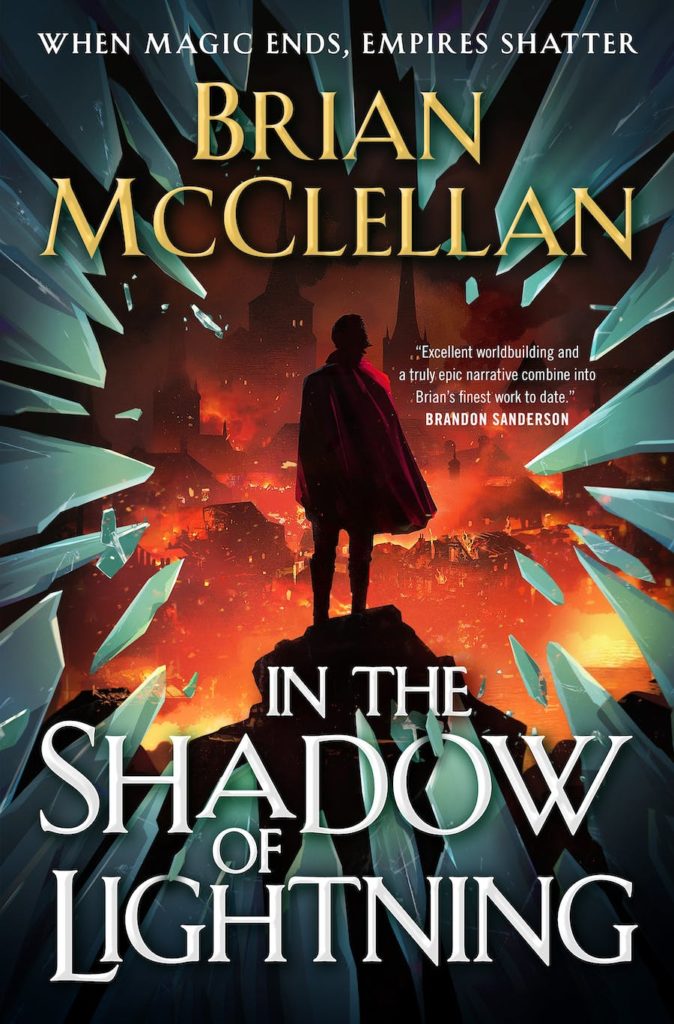






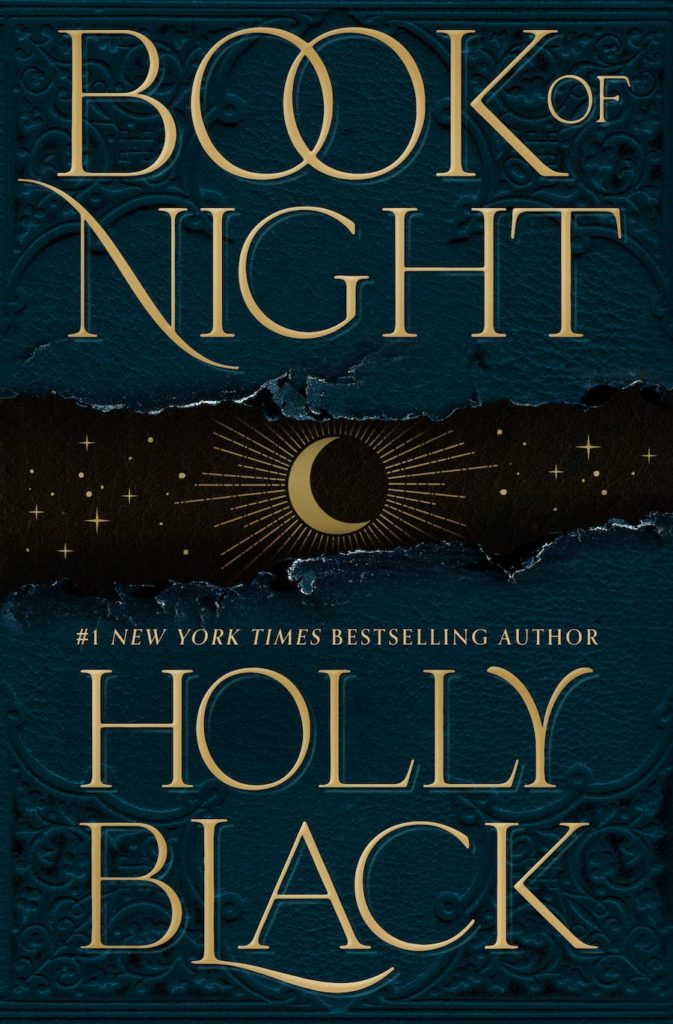

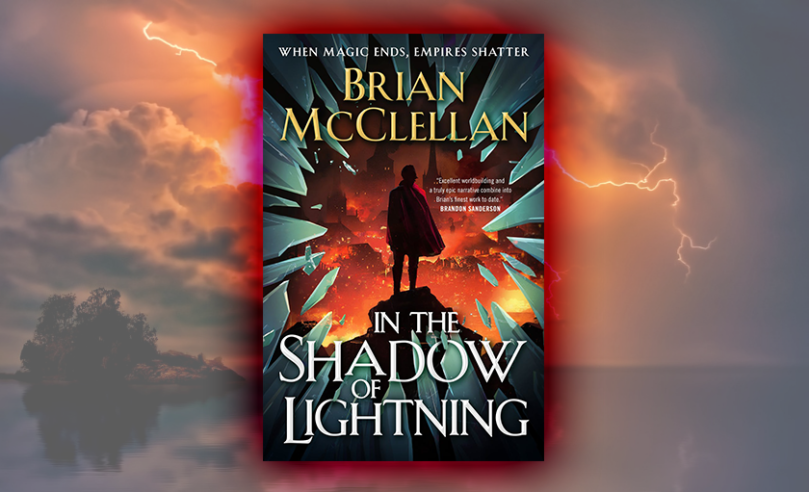
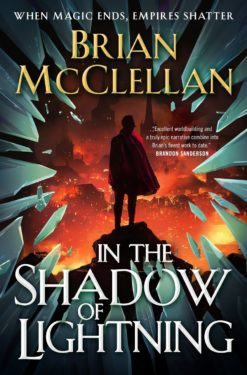
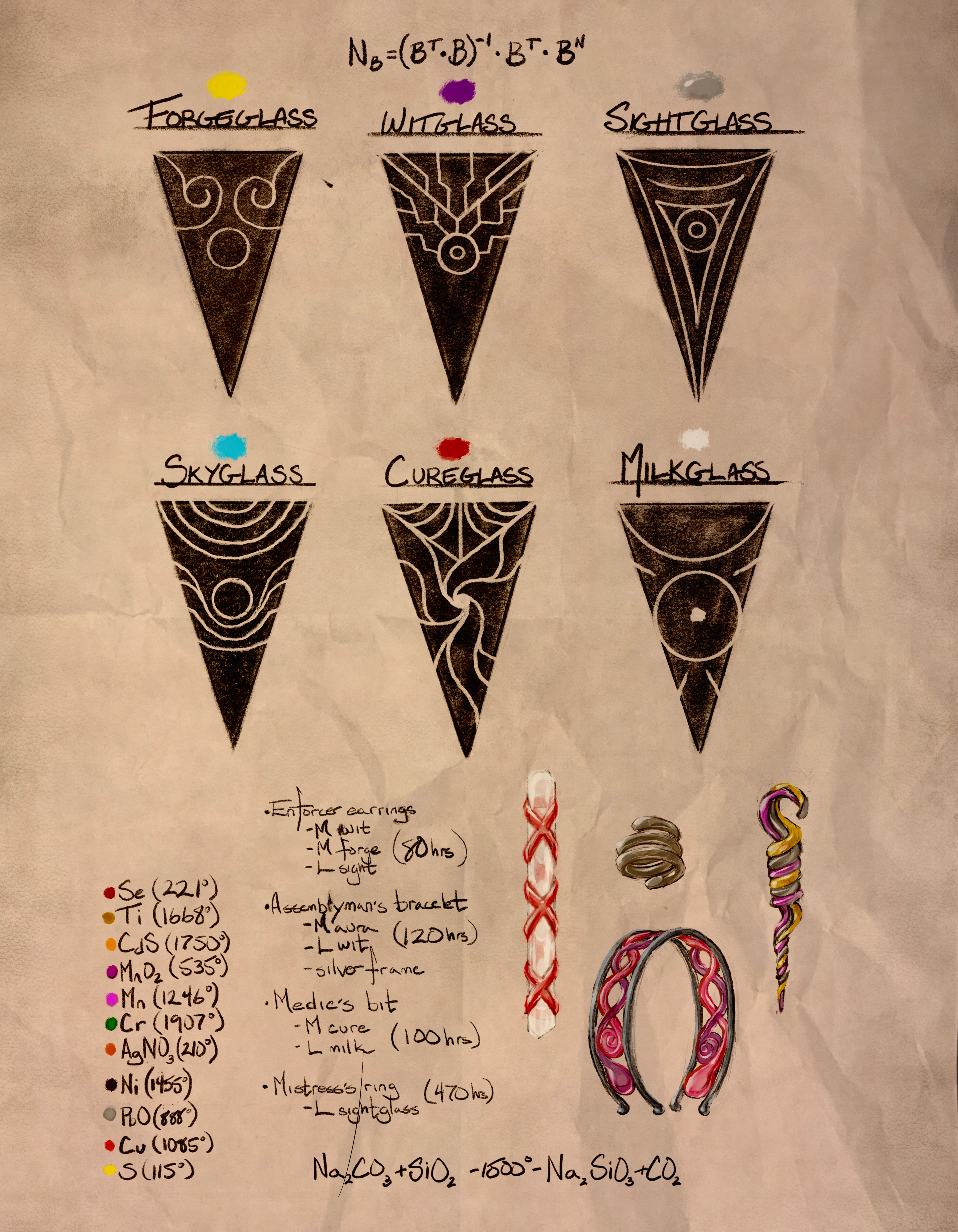




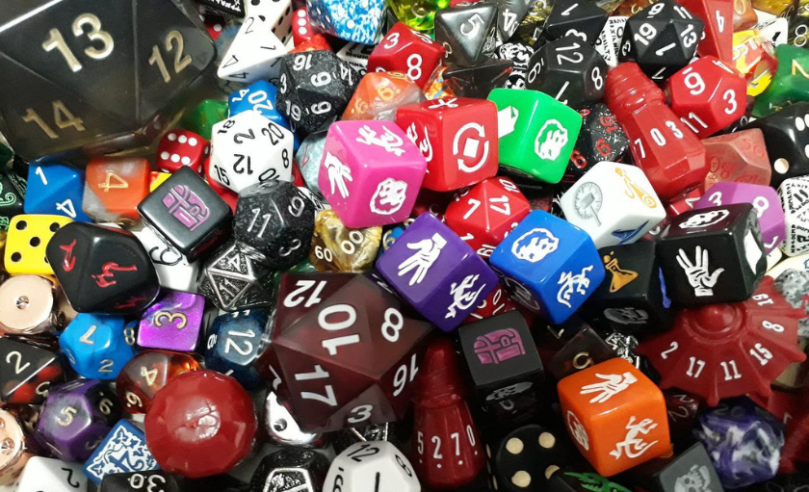
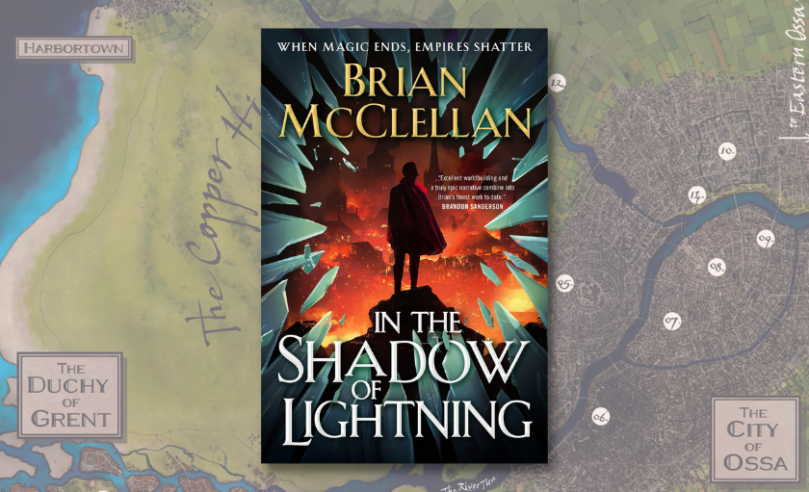
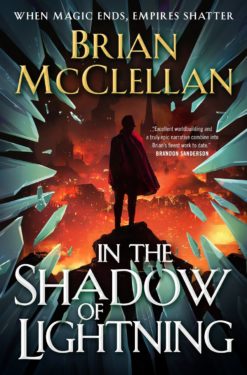
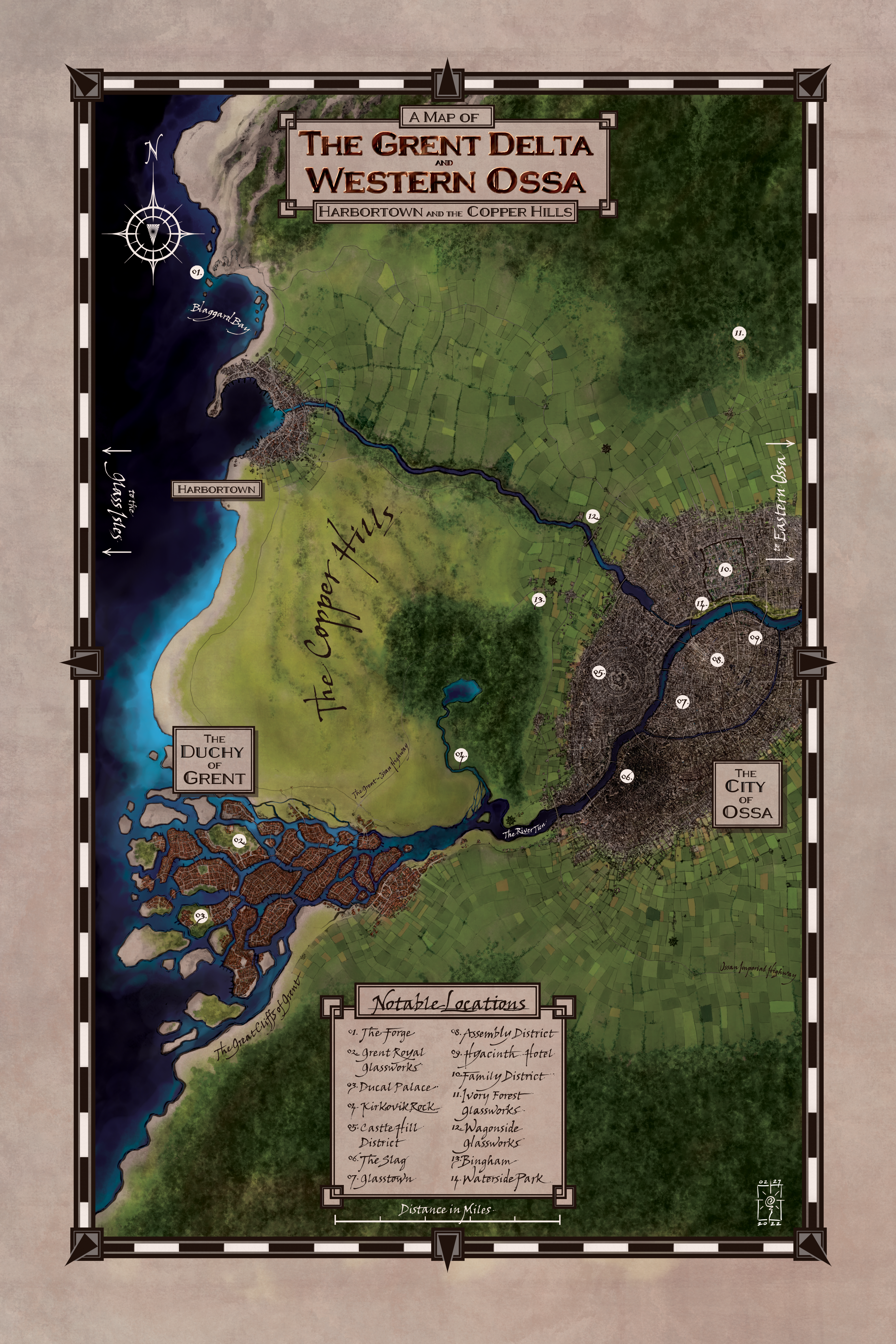

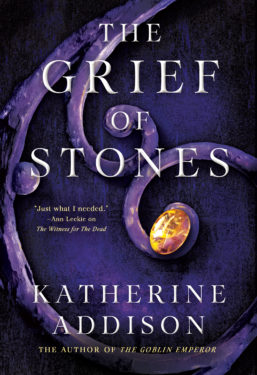 The Grief of Stones
The Grief of Stones Daughter of Redwinter
Daughter of Redwinter The Origin of Storms
The Origin of Storms Sands of Dune
Sands of Dune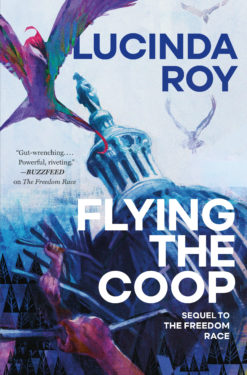 Flying the Coop
Flying the Coop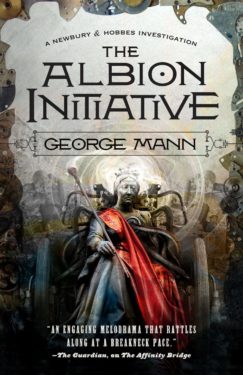 The Albion Initiative
The Albion Initiative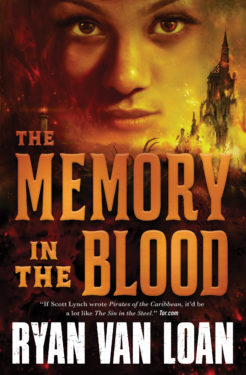 The Memory in the Blood
The Memory in the Blood Mythago Woods
Mythago Woods Just Like Home
Just Like Home
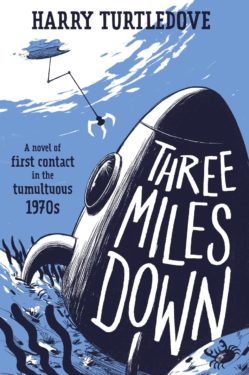 Three Miles Down
Three Miles Down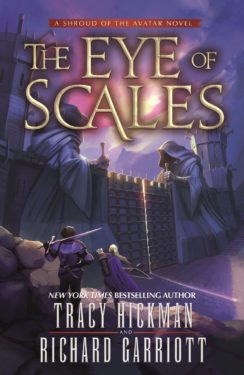 The Eye of Scales
The Eye of Scales The Book Eaters
The Book Eaters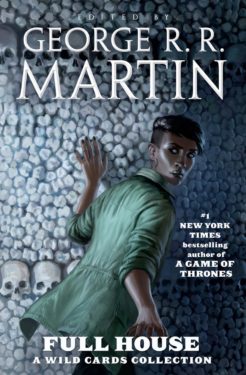 Full House
Full House Councilor
Councilor
 Dance with the Devil
Dance with the Devil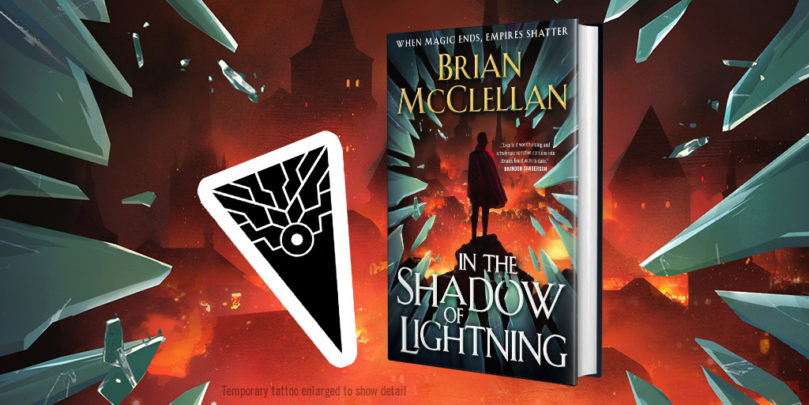
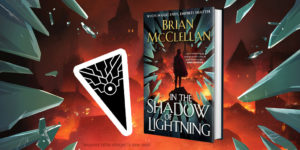
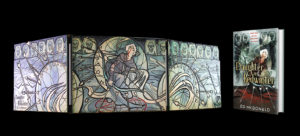
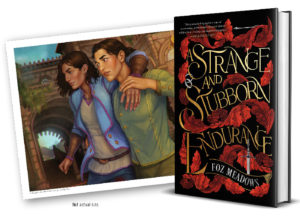

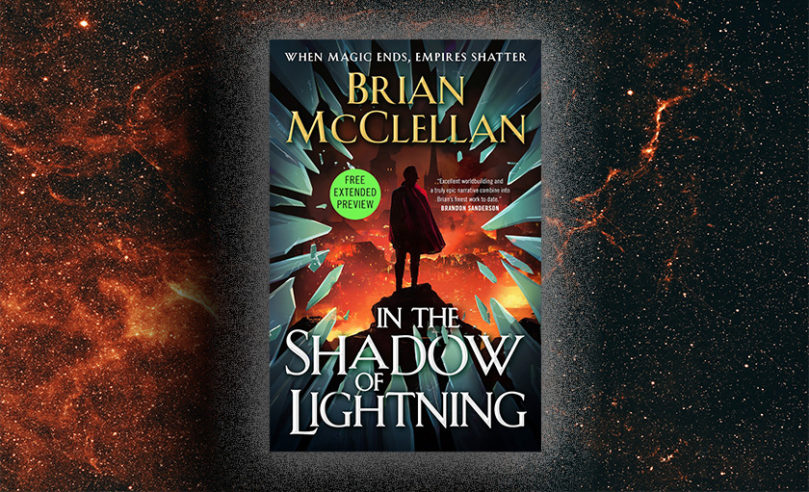
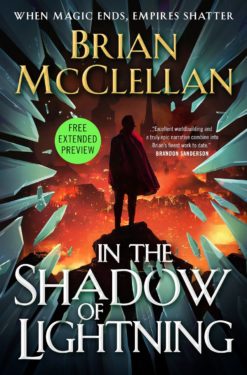 From Brian McClellan, author of The Powder Mage, comes In the Shadow of Lightning, a brand-new epic fantasy where magic is a finite resource—and it’s running out. Download a FREE sneak peek today!
From Brian McClellan, author of The Powder Mage, comes In the Shadow of Lightning, a brand-new epic fantasy where magic is a finite resource—and it’s running out. Download a FREE sneak peek today!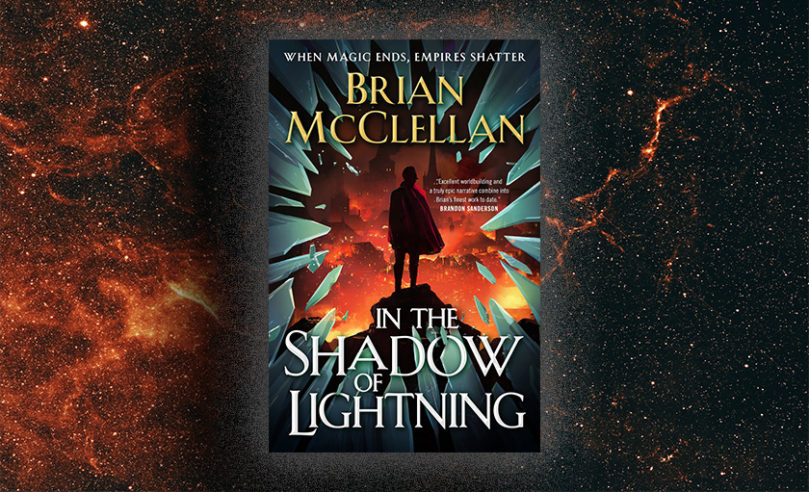
 From Brian McClellan, author of The Powder Mage trilogy, comes the first novel in the Glass Immortals series, In the Shadow of Lightning, an epic fantasy where magic is a finite resource—and it’s running out.
From Brian McClellan, author of The Powder Mage trilogy, comes the first novel in the Glass Immortals series, In the Shadow of Lightning, an epic fantasy where magic is a finite resource—and it’s running out.
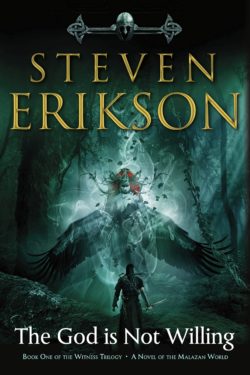 The God is Not Willing
The God is Not Willing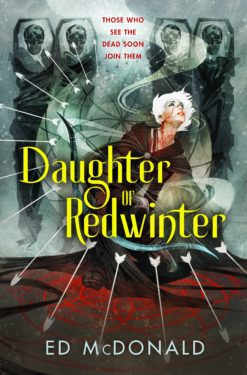 Daughter of Redwinter
Daughter of Redwinter The City We Became
The City We Became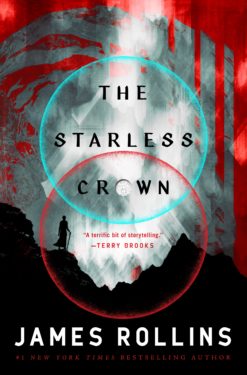 The Starless Crown
The Starless Crown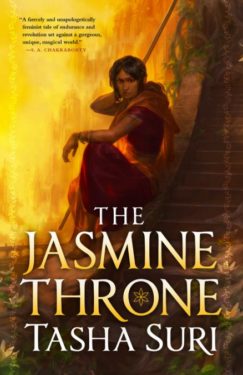 The Jasmine Throne
The Jasmine Throne In the Shadow of Lightning
In the Shadow of Lightning Black Sun
Black Sun Isolate
Isolate